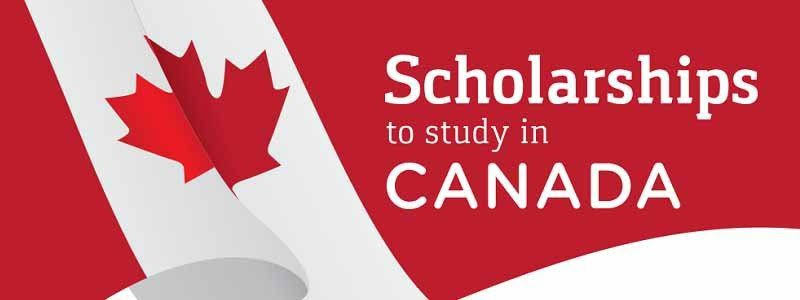Education has become one of the most vital components in determining eligibility and success for Canadian immigration. Canada’s points-based immigration system places a strong emphasis on formal education because it signals an individual’s potential to contribute economically, integrate socially, and adapt successfully to life in the country. With a growing demand for skilled talent across provinces, educational qualifications—both Canadian and international—now play a central role in immigration decisions.
Whether you are a student, skilled worker, or family applicant, educational attainment is a gateway that increases your eligibility, enhances your adaptability score, and significantly influences your long-term settlement success in Canada.
Education in Canada’s Express Entry System
The Express Entry system remains the most popular immigration pathway in 2025 for skilled workers, and education plays a critical role within its Comprehensive Ranking System (CRS). Points are awarded based on the level of education, with higher degrees such as master’s and PhDs receiving the maximum. Applicants with Canadian credentials earn additional points, giving them an edge in the competitive draw system.
For example, as of June 2025, individuals with a Canadian master’s degree may receive up to 135 CRS points for education alone, with an additional 30 bonus points for having studied in Canada. These points can be the difference between receiving an Invitation to Apply (ITA) and being passed over in the pool.
Canadian Education as a Pathway to Permanent Residency
One of the most direct immigration pathways now is to study in Canada first and then transition to permanent residency. Thousands of international students use this route annually. After completing post-secondary education in Canada, students may qualify for a Post-Graduation Work Permit (PGWP), which allows them to gain Canadian work experience—another key CRS component.
In 2025, the Canadian Experience Class (CEC) stream under Express Entry continues to favor international graduates who have completed studies and worked in Canada. Provinces also run specific streams under the Provincial Nominee Program (PNP) aimed at retaining international graduates, especially in areas like health care, engineering, and IT.
Recognition of Foreign Credentials
For immigrants with international education, Canada uses a system of Educational Credential Assessment (ECA) to evaluate the equivalence of foreign degrees, diplomas, or certificates. As of June 2025, organizations such as WES, ICAS, and IQAS continue to provide these assessments to determine how an international qualification compares to a Canadian credential.
Having a positive ECA report not only proves your education meets Canadian standards but also unlocks CRS points. Applicants are strongly encouraged to begin the ECA process early, as it is a mandatory requirement for many skilled worker streams.
Education and Provincial Nominee Programs (PNPs)
Provincial Nominee Programs across Canada increasingly target individuals with education that matches local labor market needs. For instance, provinces like British Columbia, Ontario, and Saskatchewan offer nomination streams for graduates in tech, health care, and trades.
In 2025, several provinces have launched targeted PNPs for graduates from specific institutions or fields. Education in Canada—especially in high-demand areas—makes candidates highly attractive for nomination, which can significantly boost their chances of permanent residency with additional CRS points or direct invitations.
French-Language Education and Bilingual Advantage
Bilingual applicants, especially those with education in French, enjoy added advantages in the Canadian immigration system. The federal government continues to promote Francophone immigration outside Quebec through programs like the Francophone Mobility Program and the Express Entry Francophone stream.
In 2025, having French-language education—either from Canada or abroad—can enhance your profile through language points, additional adaptability scores, and priority processing in Francophone-targeted PNPs. This is especially beneficial for applicants seeking to settle in Ontario, Manitoba, or New Brunswick, where Francophone communities are expanding.
Education as a Factor in Adaptability
Education does more than just boost your points score; it also enhances your ability to adapt to life in Canada. Immigration officers often assess adaptability as part of the eligibility criteria, and having a strong educational background is viewed as a predictor of long-term success.
Educated immigrants are more likely to secure well-paying jobs, understand Canadian workplace culture, and pursue professional licensing or postgraduate studies. In family immigration cases, the education of the principal applicant is also considered as it affects the economic stability of the household.
Post-Landing Benefits of Educational Attainment
Once immigrants land in Canada, those with higher education tend to integrate more smoothly into the labor market. As of June 2025, Statistics Canada continues to report a positive correlation between education level and employment outcomes among newcomers.
Educational qualifications also ease the process of professional accreditation and licensing in regulated fields. Additionally, educated immigrants often become more involved in civic life, community leadership, and lifelong learning opportunities, contributing meaningfully to Canada’s social and economic fabric.
Government Policies and Education-Focused Immigration
Canada’s immigration policy continues to reflect the importance of education in building a skilled, future-ready population. The Immigration Levels Plan (2025–2027) prioritizes educated immigrants to fill skill gaps in key sectors like healthcare, technology, engineering, and education.
Special pilot programs and targeted pathways, such as the Rural and Northern Immigration Pilot and the Atlantic Immigration Program, also give preference to those with educational credentials aligned with regional development goals. Education is not just a tool for individual mobility—it’s a strategic national asset.
Conclusion
Education remains a cornerstone of Canadian immigration policy as of June 2025. It influences eligibility, improves CRS scores, supports employability, and enhances settlement success. Whether gained in Canada or abroad, educational qualifications are key to unlocking multiple immigration pathways, including Express Entry, PNPs, and post-graduate work routes.
For anyone considering immigration to Canada, investing in education—either through formal degrees or professional development—is one of the most effective ways to strengthen your profile and secure a future in one of the world’s most welcoming and opportunity-rich countries.



